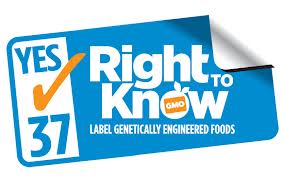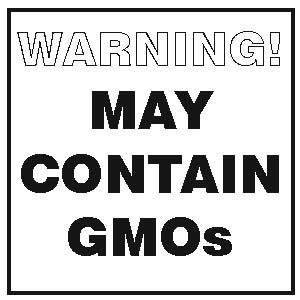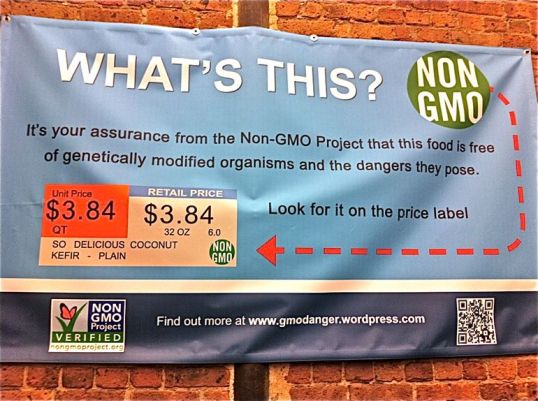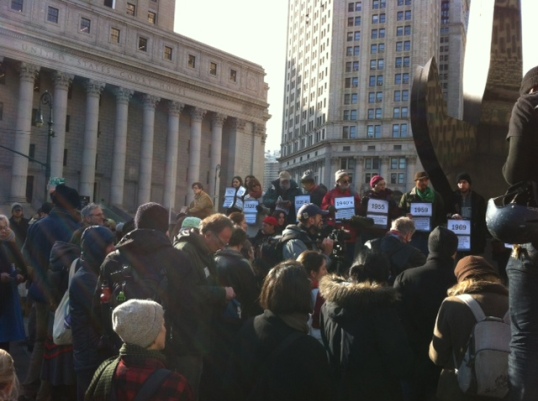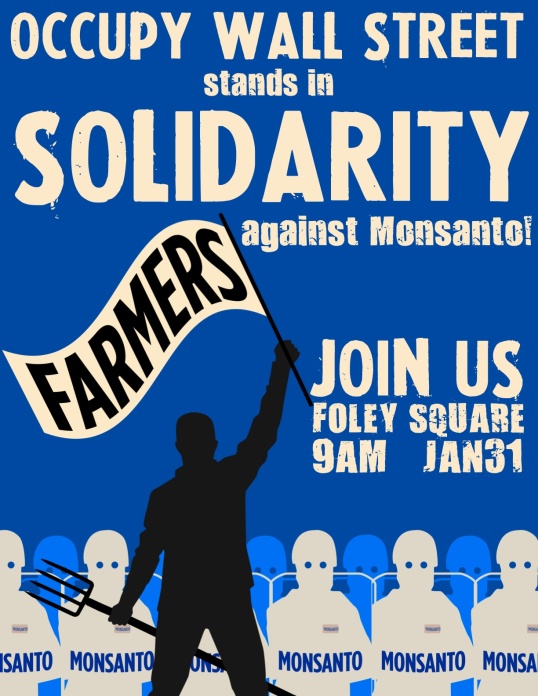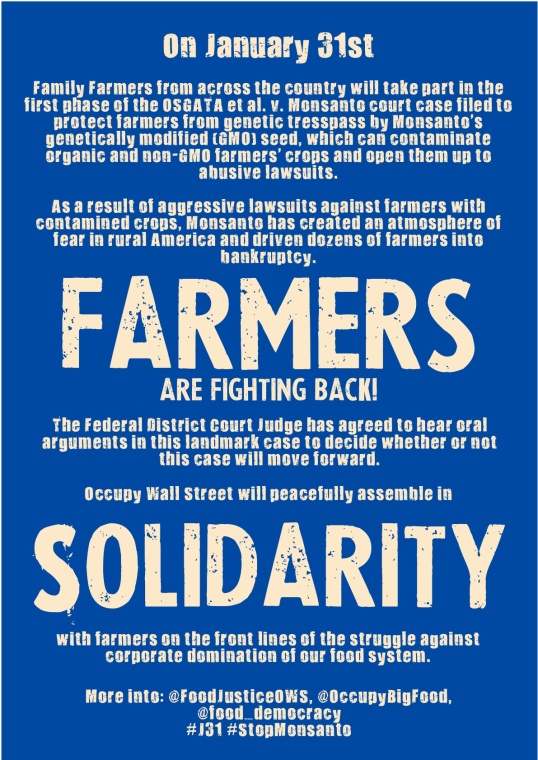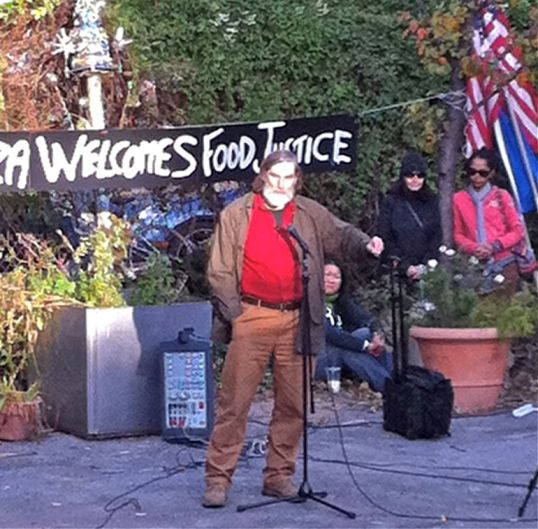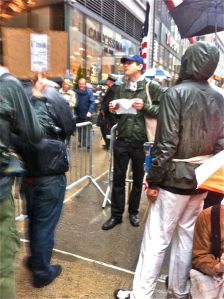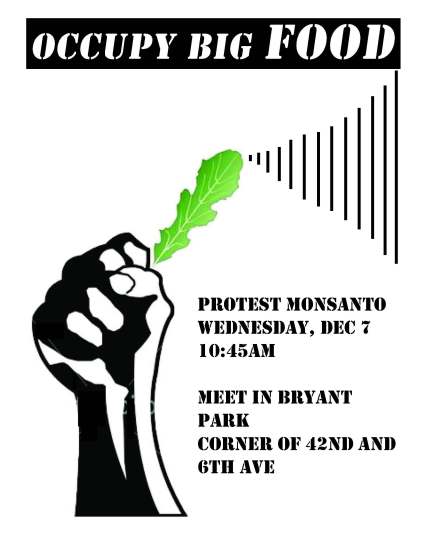Prop 37 Fails: Why We Can’t Rely on Policy to Change Our Food System
On Tuesday, Californians voted on Proposition 37, which if passed, would have required the mandatory labeling of genetically-modified foods (GMOs). Ultimately, the proposition failed by a relatively narrow margin: 46.9 percent to 53.1 percent. This indicates that close to half of all California voters (or more than four million people) would like GMOs labeled and greater transparency on the part of the food industry. As for those who voted no, many were likely swayed by the aggressive marketing (read: propaganda) efforts of the Big Food companies that poured more than $45 million dollars into the “No on 37” campaign.
According to public health lawyer Michele Simon, Big Food companies like Monsanto, Coca-Cola, ConAgra, Nestle, and Kraft, which donated funds to “No on 37” engaged in lying, scare tactics, misrepresentation, and various dirty tricks to protect their profits and keep California voters uninformed about their food choices.
None of this should surprise anyone who has been paying attention to the power that Big Food corporations wield and the deception they employ to encourage consumers to buy products that are causing harm to their health, the environment and their communities.
The problem with the tactic employed by proponents of Prop 37 is that the food movement attempted to directly confront Big Food in a legislative, policy-based battle. Prop 37 proponents worked in the arena that Big Food controls. Our governmental food agencies are strongly influenced by Big Ag and Big Food through lobbying and PAC donations. As Americans, we function under a state of corporate socialism and in no situation is this more apparent than when it comes to our food.
Engaging a government with deep ties to Big Food was a valiant and courageous effort, but the proposition’s failure shows that the food movement should rely more on itself and less on the government. This is the same government that appointed former head of public policy at Monsanto, Michael Taylor, as deputy commissioner of foods at the FDA. This is also the same government that continually hands out subsidies to the producers of the largest commodity crops like corn and soy, which are predominately (upwards of 90 percent) GMO. The federal government also determines the content of school lunches across the country and exhibited its allegiance to Big Food corporations when Congress voted to keep the designation of pizza as a vegetable in school meals — much to the pleasure of Big Food companies like ConAgra and Schwan’s, which manufacture and sell these products to schools.
Tom Philpot pointed out recently that if that food movement wants to make this bold of a move, it had better be ready for a fight. Or put more pithily, Philpot quotes Omar of The Wire, “‘Come at the king, you best not miss.'”
The real answer to usurping power from corporations like Monsanto, Kraft and Coca-cola lies in navigating terrain these corporations aren’t already deeply entrenched in. The “Yes on Prop 37” campaign raised nine million dollars to get its message out but was outspent fivefold by Big Food. The food movement learned a valuable lesson in the failure of Prop 37: We can’t outspend Big Food and we can’t out campaign them — but we can outsmart them.
This is precisely why the food movement should be operating with more stealth, savvy and direct-action style engagement. One example of this and an immediate solution to the lack of labeling on GMO foods is for consumers to label foods themselves (visit labelityourself.com). This site provides ready-made warning labels for GMO foods and advocates for guerrilla-style tactics. “Label It Yourself is a decentralized, autonomous grassroots campaign born out of our broken food system,” according to the site. “We have been asking our government to label food products so we can make educated decisions about what we eat. The government has ignored our requests and so we are taking matters into our own hands.”
Mandating the labeling of GMOs in California would have been an enormous victory for the food movement but the fact that Prop 37 failed indicates that we need to speak louder and with more ferocity. In the wake of Hurricane Sandy, it has become abundantly clear that time is of the essence. Big Ag is the second largest contributor to climate change and it accounts for roughly a third of emissions globally. We can’t wait to be saved from the devastation that climate change is bringing to our communities.
Localizing our food supply and minimizing the use of harmful chemicals and pesticides presents a viable alternative to Big Ag’s devastating forms of food production and has the potential to create truly sustainable and resilient communities. But let’s not wait for legislation or for the government to cut ties with Big Food — let’s cut those ties ourselves as we develop, build, and connect the localized food communities that are forming all over the country. We can create an alternative food infrastructure. It’s time for the “food movement” in its myriad and infinite permutations, to coalesce into a force to be reckoned with. This didn’t happen with Prop 37 or a legislative battle but it can be done. What are we waiting for?
Written by Kristin Wartman and Erika Lade, also published on The Huffington Post

